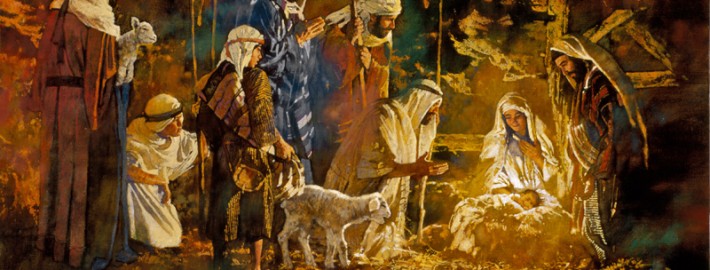What is so sacred about sex? – Part 2
This continues from part 1…..
In part one of this article, we discussed the sexual mood of our present culture and whether or not as human beings, we are the owners of our own bodies and minds. We ended on the note that if it is the case that we have been made or created by someone else for his own purposes, then surely we would have a lot more obligations than we would have if we only belonged to ourselves. But we also noted that, this is a big “IF” because some people do not believe (or at least they live as if they don’t believe) that there is any Being higher than ourselves, to whom we must be responsible. Is it reasonable to believe that an actual Being exists who is responsible for our existence and to whom we might be accountable to, regarding our sexual lives? If there is the possibility for such a Being to exist, why would he be interested in what we do with our bodies sexually?
For starters, let us be brutally honest with ourselves: everything in this world – from ourselves to the flowers to the stars to sea to animals etc – points to the fact that some sort of careful designing has gone into the creation of our world and of ourselves, doesn’t it? We often take it for granted that this physical world of ours is structured the way it is. But mathematically speaking, the probability of this world happening by a mindless random or unordered process is incredibly small. According to Astrophysicist Hugh Ross’ conservative calculation, the chance of a planet like ours existing in the universe is about 1 in a trillion billion billion (i.e. 1 in 1,000,000,000,000,000,000,000,000,000,000 or 1 in 10 raised to the power 30).
Scientists are discovering that had even a single feature of our universe been just a little bit different, the stars, galaxies and human life would not exist. Let us briefly look at a few amazing scientific discoveries before we go on. The distance from the earth to the sun is just right. Why? Even a small change of around 2% and all life would cease. If the earth was too near the sun, water would evaporate. If it was too far from the sun, its coldness level would not support life. In fact, even the rotation speed of the earth is just right; if it was too slow, the temperature differences between day and night would be too extreme, and if it was too fast the wind speeds would be catastrophic. Furthermore, if the ratio of the electromagnetic and gravitational forces had differed by about one part in ten thousand billion billion billion billion (i.e. 1 part in 10,000,000,000,000,000,000,000, 000,000,000,000,000,000), then stars such as the Sun, which are capable of supporting life, could not exist. Do you see any picture emerging?
The delicate balance of the elements in our universe, to use the illustration of the theoretical physicist Paul Davies, is like the accuracy level that a marksman needs in order to hit a coin twenty billion light years away on the other side of the observable universe. [A light year is the speed travelled by light in one year. And light, by the way, has the fastest travelling speed in our universe]. In fact it has been noted by some researchers that the earth is placed precisely in a part of the universe that is congenial to scientific studies in cosmology, galactic astronomy, stellar astrophysics and geophysics. That is, if our earth had been positioned in a part of the universe with too much starlight, we could not have been able to see into deep space. There are more than 3000 galaxies in the observable universe, each containing millions to trillions of stars – many being bigger than the earth.
Further, Oxford mathematician John Lennox in his book, ‘God’s undertaker: has Science buried God?’, notes that the distinguished mathematician and astronomer, Sir Fred Hoyle, admitted that his atheism was shaken profoundly when he discovered the degree of fine-tuning needed between the nuclear ground state energy levels in order for carbon to be formed either by a combination of three helium nuclei, or by a combination of nuclei of helium and beryllium. (And for the record, life cannot exist on earth without an abundant supply of carbon). Sir Hoyle’s discovery, according to Lennox, led him to remark that, “a superintellect has monkeyed with physics as well as with chemistry and biology,” and that “there are no blind forces in nature worth talking about.” Interesting isn’t it? And let us not forget the issue of the human DNA – the molecule containing coded instructions for the cells in the body. A group of scientists have recently estimated that the adult body contains about 37.2 trillion cells, each containing DNA. Each person’s complete DNA is unique; the exception being identical twins. The instructions are in what is called Genetic language and they are detailed, complex and specific. These instructions include for example, which cells should grow and when, which cells should die and when, which cells should make hair and what colour it should be. If all this sounds too technical, then let me make it simple: the scientific discoveries are pointing in the direction where it is highly unlikely that an intelligent Being did not plan and execute the creation of this whole skilfully crafted universe, including human beings like us.
What is my point with all this information? It is this: if conditions in this universe, and the nature of our human bodies, are the way they are – so delicately precision-tuned – and if human beings like us posses the kind of intelligence we posses, even to study them, then it is very reasonable to (and unreasonable not to) suppose that a more intelligent Being, (1) is out there, (2) is the cause of our beings and (3) is interested in our lives. Now if we relate this thought to Mr. Lewis’ thoughts about moral duties (discussed in part one of this article), we can say with a fair degree of confidence that the whole of mankind must have a Landlord. Our bodies, strictly speaking, are not ours. Our Landlord is this Intelligent Being who created this world and everything in it. Religious folks simply call him, God. Since this God is the cause of our intricately designed bodies and existence, it is not mind-boggling that any “Dos and Don’ts” on how we use our bodies should come from him.
A Curious Worldview
In his speech to the members of the city council of Athens, Paul the apostle of Christ tried to give them a new view of God, saying, “God, who made the world and everything in it, is Lord of heaven and earth and does not live in temples made by human hands.” (Acts 17:24 GNB) In a city so used to building alters and shrines for every imaginable god, this news was however unimaginable. But to the people in the city of Corinth (a city well-known for its immorality), who became believers in Jesus Christ, Paul wrote them a letter in which he explained to them the sacredness of their bodies: “…the body is not to be used for sexual immorality, but to serve the Lord, and the Lord provides for the body. God raised the Lord [i.e. Jesus] from death and will also raise us by his power. … Don’t you know that your body is the temple of the Holy Spirit, who lives in you and who was given to you by God? You do not belong to yourselves but to God; he bought you for a price. So use your bodies for God’s glory.” (1 Cor. 6: 13,14, 19,20 GNB). Dr Ravi Zacharias, a Christian philosopher, appropriately explains that, “the Christian walks with God, not to God. We no longer go to the temple to worship. Rather we go with our temples to worship.” The body of a believer in Christ, rather than a church building, is the holy dwelling place of God and must be treated as “holy grounds.” Thus what this person wears, or touches, or says, or looks at or reads or listens to must uphold God’s holiness.
So much for the Christian “bodies”! What bearing does this worldview have on those who do not subscribe to it? The non-Christian is a prospective temple of God. God wants to live in this person. The Christian explanation for human existence in general is that God made us and not only that, but also that he made us all for himself (Col. 1:16) and he made us in such a way that only in union with him can our greatest good be had (John 10:10). Sin does not allow this to happen. But God became man in Jesus Christ, lived uprightly among us, identified with our human weaknesses, paid for our sins in his death and rose up and wants to live in us to empower us to live as we ought to. Like C. S. Lewis once observed, God invented us in a certain sense like how a man invents an engine. And when a car is made to run of gasoline, it would not run properly on anything else. In this same sense God made the “human machine,” as Lewis puts it, to run on himself.
The fuel we need in order to function the way he designed us is God himself and the food we need to keep our souls spiritually alive is God himself. We cannot expect to function properly on our own terms. Sexual fulfillment (a major hunger of our generation) with its proper joy, peace and security does not come through the pulling down of God’s boundaries. Without God at the centre of a sexual relationship, our much desired real and secure intimacy which we often believe can be found in sexual intercourse will prove elusive. Any person, Christian or not, who tries to outsmart God on this front will soon find that the last laugh is always God’s, not ours; restlessness, emptiness, meaninglessness, broken trust, guilt and shame will ultimately come resting at our door steps. There is definitely pleasure in sin but it is fleeting. Kenyan Christian Apologist, John Njoroge, insightfully says that, “Trying to meet our real needs without God is like trying to satisfy our thirst with salty water: the more we drink, the thirstier we become. This is a sure path to various sorts of addictions.”
Even in our limited wisdom, we realize that playing our cherished game of football without any rules does not make it really enjoyable. So we have created rules, in all their imperfections. Even with the rules in place, some people hurt others and get hurt themselves; they offend and get offended during the course of the game. Can you imagine the unbridled chaos that would exist if there were no clear rules? In the same way, we are living in an increasing sexually chaotic culture today because we are desperately throwing off God’s moral restraints: husbands and wives are sleeping with people other than their spouses, young unmarried boys and girls are “training” themselves in the act of sex yet ironically the idea of marriage is appearing uncomfortable to them because of its widely acknowledged moral limitations. God has provided a framework within which sex can be properly enjoyed physically, emotionally and spiritually, and it is not outside marriage.
In God’s scheme of things, according to Christian teachings, you do not need to be experienced in sex before marriage. This is because you have the whole of your married life to get to know your spouse’s body (God’s gift to you) as your bodies lock and your spirits mesh in sexual intercourse before God. With each encounter you get to know the body of your spouse even better to the glory of God. And here is the rich wisdom of the Christian faith (which may seem foolish on the face of it): Any person who genuinely relies on Jesus Christ before his marriage and also during his marriage will be given the grace and spiritual strength to stay the course of marriage should he find out that he has ended up with a sexually defective spouse. Tough to take in, I know, but I cannot make this truth any more appealing than it sounds right now in a time like ours. Marriage is not a selfish enterprise, where if you are not having a sexually exciting life everything else must come crushing down for everyone in it. Rather it is essentially a self-giving worship of God as you commit yourself exclusively to that one person, to love, to cherish and to seek the good of this person always.
The Christian scriptures teach that all who trust in God will not be disappointed, ultimately. But break God’s precepts on sex (or on any other issue of life) and you can be sure that you will not only separate yourself from God and into a dark loneliness of the soul but you will also hurt yourself and others. Let us be clear: the idea that God is an unloving and unfeeling Judge up there who is simply watching down to see who has gone even slightly wrong so that he may swiftly punish him, is wrong. God wants to reconcile us back to himself. This is the Christian message to the world. God’s precepts in the Bible are intended to facilitate our happiness and not to stifle it. A parent sternly warns her child to steer clear of fire not because she wants to make the child miserable but because she wants to prevent the child from getting hurt or even dying. How can a child enjoy life when he is hurt or dead? If we separate ourselves spiritually from God (a spiritual death), through sin, how can we expect to receive God’s best? God knows the limits within which our best can be had. Stolen waters are not as sweet as we want to believe. Many people may look happy on the outside but on the inside they may be empty, restless, bitter and troubled because they have violated God in this area of sex.
Conclusion
We were made for God and if we spend ourselves in illegitimate pleasures, we will only come away broken and impoverished in our souls (and perhaps with physical scars too). No one enriches his soul by being sexually immoral. Rather we bankrupt ourselves spiritually; we feel the emptiness, restlessness of the soul, the guilt and shame of sin because we have divorced ourselves from God, who is our ultimate good. A more serious side to sexual immorality is that in the end, we must give account of our lives to the God. Some people realize this quicker than others but the important thing is that we are willing to take the necessary steps back to God through the path he has provided – faith in his Son, Jesus Christ. And to be clear, faith in Jesus Christ is not mere intellectual belief in Jesus as Lord but includes a willful commitment to live the whole of one’s life in reverence of him and his teachings. Christ offers forgiveness and rebirth even to the one who has wrecked himself or herself sexually yet is willing to repent. Are you a mess, sexually? Jesus gives hope and strength to those seeking to please God in their sexual lives.




